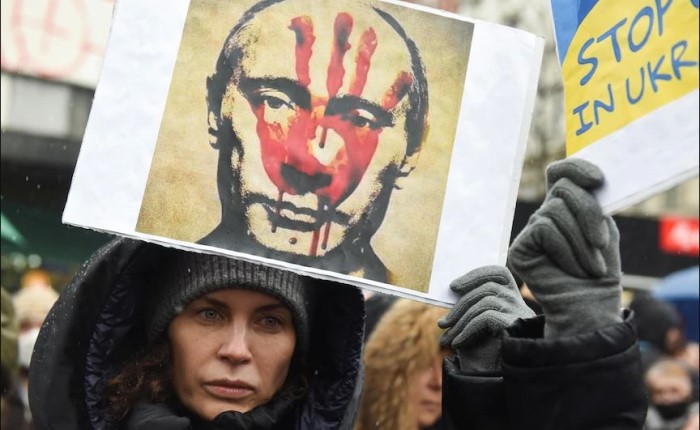“Victory Day” without any victory: how Moscow drove itself into a dead end

In public, Russia’s full-scale war against Ukraine is increasingly being compared to the World War II. Such a comparison acquires special symbolism on the eve of the celebration of Russia’s sacred “Victory Day”.
At the same time, we can state that for Russia this is the Great Patriotic War “vice versa”: this time the Kremlin took role of the aggressor, whom they tried to pacify for a long time (doesn’t it remind you of anything?). This was reflected even on the battlefield: Russia tried to implement the “Blitzkrieg” (similar to the Barbarossa plan), Russian troops came close to the Ukrainian capital, but due to desperate resistance from Ukrainians and heavy losses of own army were forced to retreat from the Kyiv (similar to tactical defeat of German forces in the Battle of Moscow and their retreat from the Soviet capital in 1941-1942). There is a modern version of the siege of Leningrad – now it’s Mariupol. Some military experts draw parallels between the Battle for Donbass region and the Battle for Kursk in 1943.
It is possible that such comparisons are “drawn by the ears”, but they are relevant when we analyze the war in the discourse of Russian propaganda.
As for the celebration of May 9, the Kremlin’s has nothing to celebrate. The civilized world is consolidated as the Anti-Hitler coalition was once consolidated – sanctions pressure is growing, Western democracies continue to provide humanitarian and military support to Ukraine, and European integration is becoming closer. Russian troops have suffered a number of defeats in Ukraine and their loses are heavy big. Russian society is beginning to feel the consequences – “propaganda-inflated” supporters of the war against Ukraine criticize the Kremlin dictator for numerous failures and weaknesses. Opponents of the war have criticized him for waging it. One way or another, but the majority of society is dissatisfied with the political leadership of the Russian Federation. Data from opinion polls conducted by Russian centers where the Russian president is supported by more than 80% of the population are questionable (under total censorship and pressure on all institutions, objective results are unlikely to be published)
There is information among the media that the dead-end Russian president will publicly declare war on Ukraine on May 9 and decide to mobilize. They say “de facto, we are not at war with Ukraine, but with NATO. It is necessary to unite. A new “patriotic war” has begun, and so on and so forth and bla bla bla“.
A little thought about it. The war has been going on for 8 years (since 2014), while now its active phase, which began with the large-scale invasion of Ukraine by Russian troops. As for mobilization, firstly, it is a long process that is unlikely to significantly change the situation at the front (gradually equipment of good quality and resources are ending in Russia, and sanctions are gradually “killing” the Russian economy), and secondly, the announcement of mobilization will mean acknowledging all the military failures (if military leaders report that everything is going according to plan then why mobilization is needed?), thirdly, such a decision may have completely unexpected consequences – one thing when you learn about the war from smartphones and TVs, and quite another go to war and risk your own health and life.
And in general, when the government is arming a large number of people who have been kept in poverty in recent years, the danger of an armed uprising should be taken into account. Violent dispersal of rallies may no longer be.
We believe that the scenario in which another pathetic presidential speech with numerous mentions of the “Great Patriotic War” and the fight against world evil will take place on Red Square is more probable. It is likely that the President of the Russian Federation will make some kind of bureaucratic decision such as “temporary order of conscription for military service under a simplified procedure for the period of a special military operation.” The organization of conscription will be the task of regional governors, who will be responsible for all problems in the event of strong public discontent.
What will be the “efficiency” of such a potential decision of the President of the Russian Federation? Will the mobilization process not face the traditional problems of corruption and distorted institutions in Russia?
Time will tell…

Останні коментарі